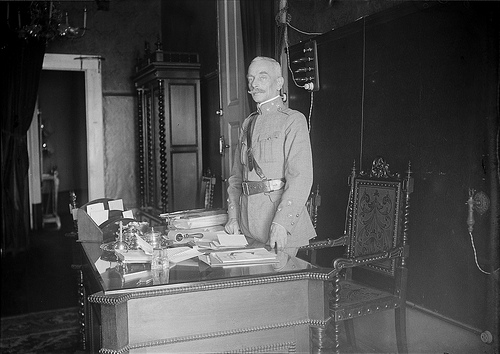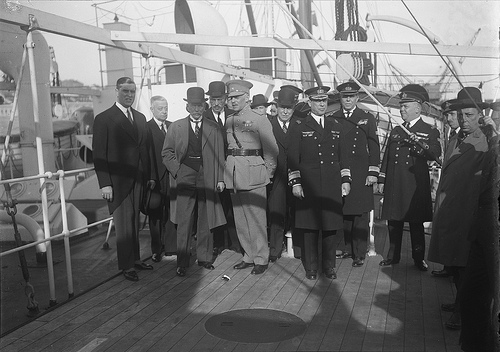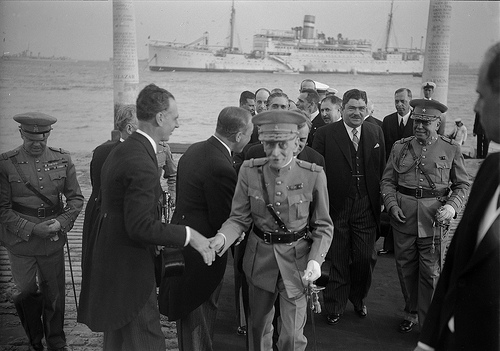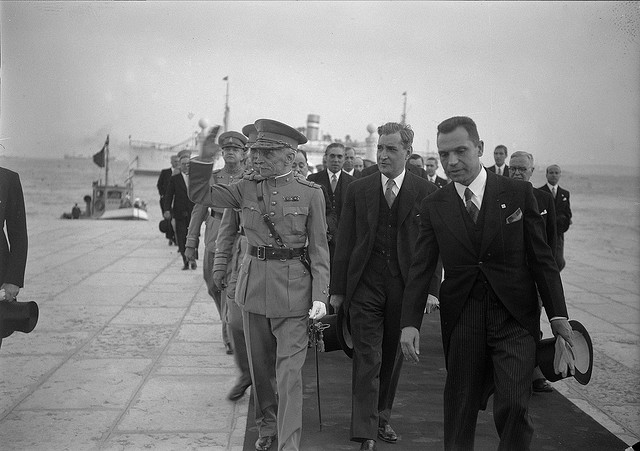<Back to Index>
- Mathematician Gerhard Karl Erich Gentzen, 1909
- Painter Maria Konstantinovna Bashkirtseva, 1858
- President of Portugal António Óscar Fragoso Carmona, 1869
PAGE SPONSOR
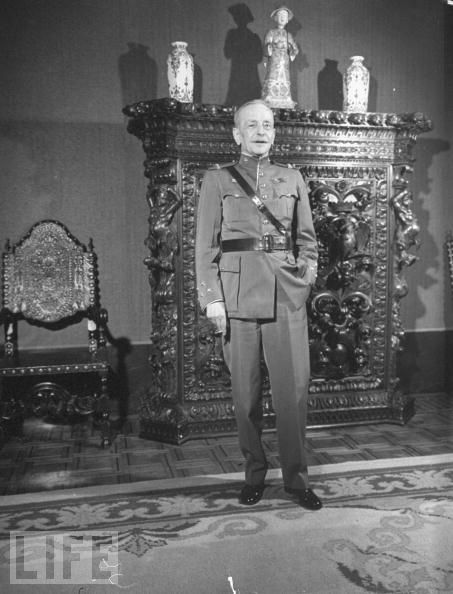
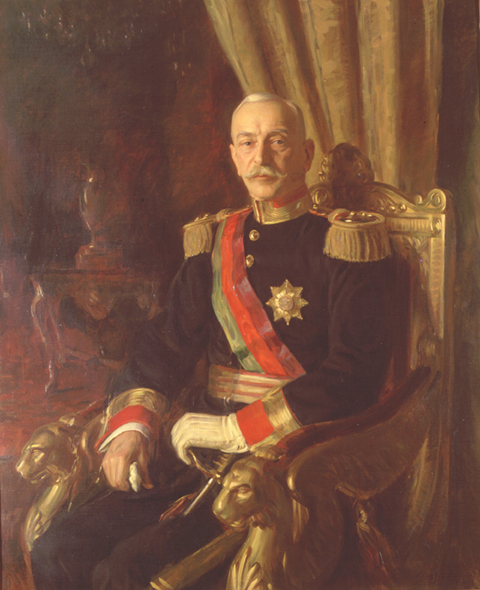
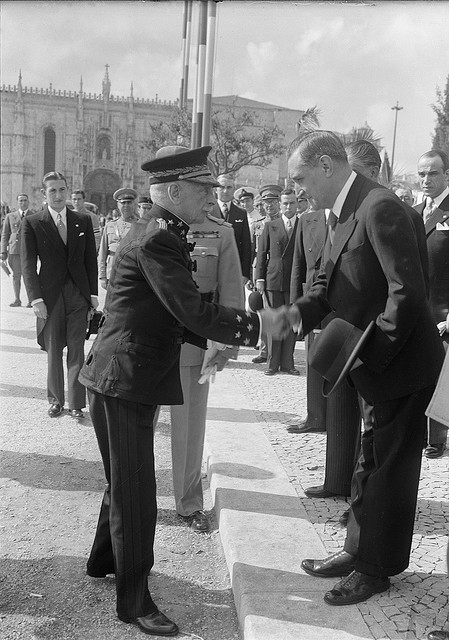
António Óscar Fragoso Carmona, ComC, GCA, ComSE, (often called António Óscar de Fragoso Carmona; Lisbon, 24 November 1869 - Lisbon, 18 April 1951) was the 11th President of Portugal (1926 – 1951), having been Minister of War in 1923.
Carmona was a republican and a freemason and was a quick aderent to the proclamation of the republic, on 5 October 1910. He was however never a sympathizer of the democratic form of government and, as he later would confess in a interview to António Ferro, he only voted for the first time at the National Plebiscite of 1933. During the First Republic he was briefly War Minister in the Ministry of António Ginestal Machado in 1923. Unlike the popular marshall Gomes da Costa, Carmona had not fought in World War I.
In January 1914 he married Maria do Carmo Ferreira da Silva (Chaves,
28 September 1878 - 13 March 1956), daughter of Germano da Silva and
wife Engrácia de Jesus. With this marriage he legitimized their
three children. Carmona was very active in the 28th May revolution of 1926 that established the Military Dictatorship. The first Council President, commandant José Mendes Cabeçadas, of democratic tendency, was succeeded in June by Manuel de Oliveira Gomes da Costa, also a supporter of the parliamentary democracy. Carmona, who had been the Minister for Foreign Affairs between 3 June and 6 July, took then the power, as the leader of the most
conservative and anti - democratic wing of the Dictatorship. Carmona
became officially President of the Republic in 1926, being elected in
1928, as single candidate. In 1928 Carmona appointed António de Oliveira Salazar as Minister of Finances.
Impressed by Salazar's charisma and qualities, Carmona nominated Salazar
as President of the Council in 1932. In 1933, with a new constitution,
the "Estado Novo" was finally officially established. Carmona
was the Head of State, but he held little power, as power was
concentrated in the hands of the President of the Council, Salazar. He
was elected without opposition in 1935 and 1942 for seven year terms.
In 1935 he signed the law that forbade Freemasonary in Portugal, with
dismay due to his freemason past. He
was unfriendly with the Democratic Opposition movement that came into
legality in 1945, after World War II, assuring that he did not want to
intervene in the government's decision of not delaying the legislative
elections, as was demanded by them. However
there were widespread rumours that Carmona supported the failed
military uprising in 1948, which was led by general José Marques
Godinho, to overthrow Salazar, with the condition that he would remain
as President of the Republic. Probably to end these rumours Carmona
finally accepted the title of marshall. In
1949, Carmona, aged 79, was a candidate for the Presidency of
the Republic for the fourth time, facing the opposition of general José Norton de Matos.
The democratic candidate left the race shortly before the elections and
Carmona once again was reelected for a seven year term. Carmona died two years later, in 1951, after 24 years in the Presidency of the Republic. He was buried in the Church of Santa Engrácia, National Pantheon, in Lisbon.
Carmona wrote a book of rules for the Cavalry School in 1913. The town of Uíge, Angola, was called Carmona after him. It had this name until 1975 when the Portuguese Overseas Province of Angola became independent. He is the grand - uncle of the former Mayor of Lisbon Carmona Rodrigues (2004 – 2007).
